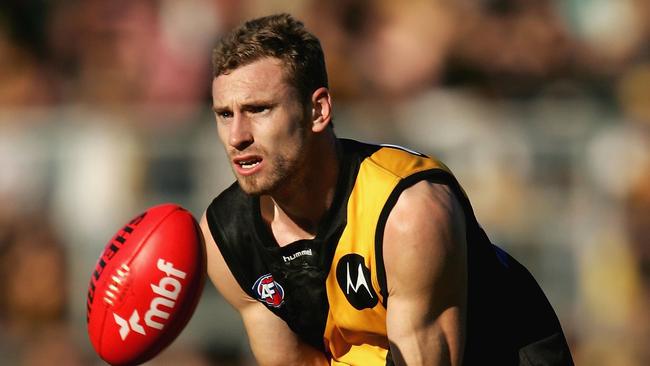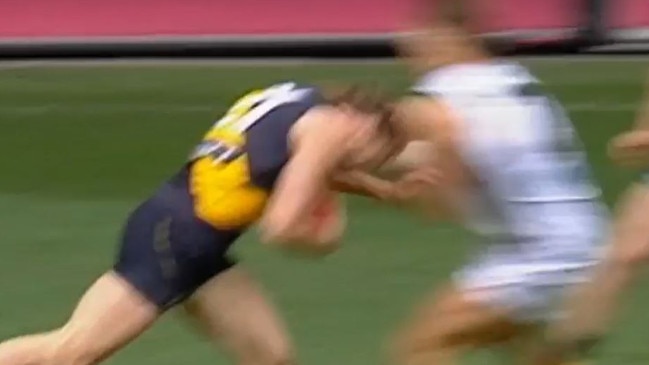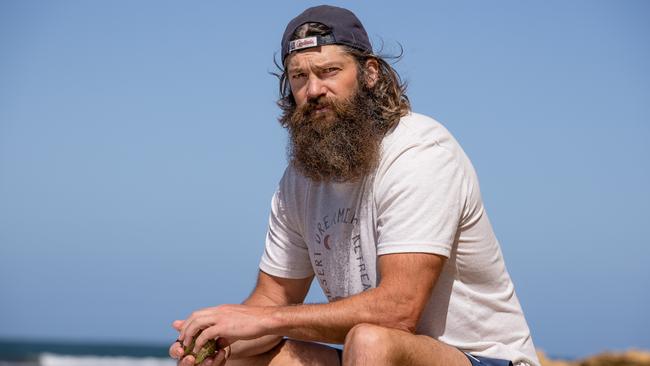Class action concussion lawsuit led by Shane Tuck’s widow expected to be dropped
A class action concussion lawsuit led by Shane Tuck’s widow Katherine is expected to be dropped and merged into a single class action as the AFL faces years of litigation.

Police & Courts
Don't miss out on the headlines from Police & Courts. Followed categories will be added to My News.
A class action concussion lawsuit led by Shane Tuck’s widow Katherine is expected to be discontinued and merged into a single class action as the AFL faces years of litigation.
Ms Tuck and former AFL players were represented by South Australian-based lawyer Greg Griffin who last month informed them that their claim against the league would be preserved as part of a class action fought by Margalit Injury Lawyers and led by Geelong premiership player Max Rooke.
The Supreme Court on Thursday heard discontinuance of the Tuck class action was not opposed by legal representatives for various players, clubs and the AFL and Justice Andrew Keogh would make a ruling at a later date.
He will also consider whether a separate claim brought by former Western Bulldogs player Liam Picken should be stayed.
If the Tuck-led claim is discontinued, four clubs — Adelaide, Hawthorn, Richmond and Port Adelaide — will avoid direct lawsuits as the Rooke class action only involved the AFL for its treatment of players with concussion.

Mr Griffin told his clients liability for their or their family members’ injuries lay with the league as it was the body “solely responsible for creating, implementing and overseeing” the game’s rules and regulation.
“The Clubs themselves are not responsible for such matters. Those matters are exclusively within the purview of the AFL,” he wrote.
The court on Thursday heard the AFL was facing years of litigation with lawyer Ben Ihle, for the league, saying a trial within the next 12 months was “not only optimistic, it’s unrealistic”.
Justice Keogh said it was “messy” that clubs were named in some claims but not the Rooke lawsuit and questions remained as to whether they would be involved.
Barrister Peter Hamilton told the court individuals that wanted to sue clubs could do so separately from the class action.

The Herald Sun last month revealed the AFL would defend the class action, which involves more than 100 players and family members, by claiming clubs and individuals were responsible for footballers’ health and wellbeing.
In its filed defence, the league also claims players knew, and accepted, the inherent risks in playing professional contact sport.
“Responsibility for the management and assessment of players’ injuries during … matches and training, and removal … of players from those matches and that training fell to the players’ employers, (club officials) and the players themselves,” court documents state.
“Players were able to exercise their own judgment and free will in deciding whether, and how, to train and play Australian football and follow medical … or other advice having regard to the risk of traumatic injury to their head, and in particular their brain.”
Margalit Injury Lawyers’ Managing Principal Michel Margalit previously said she hoped the league would take a pragmatic approach and come to the table for mediation.
Justice Keogh is expected to hand down his decision in the next few weeks before the case returns to court in late May or early June.




